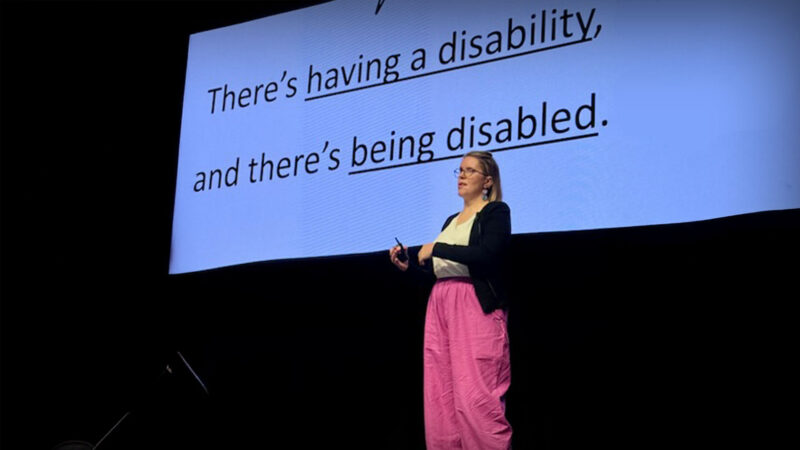In March 2022, the Australia government announced $350 million of funding over 4 years to employ on-site pharmacists in residential aged care, starting July 2023. In April 2023, the government made changes to the proposed on-site pharmacists, where the new program will now be delivered by and through community pharmacies. Regardless of how the model will be implemented, the goal remains the same – to improve quality use of medicines and medicines safety for aged care residents.
While it is relatively easy for pharmacists to monitor and manage some types of medicine harms (e.g., due to use of inappropriate medicines), many medicines can cause “milder” harms (e.g., poor balance, sedation) that are difficult to detect without the right tools. Left unmanaged, these “milder” harms can lead to serious adverse events such as injurious falls, according to Pharmacist Julian Soriano talking to Australian Health Journal.
In a joint project between UniSA, Tanunda Luteran Home, Flinders University and UNSW, a digital solution has been used to create an evidence-based, medicines use model to assist pharmacists (on-site aged care or community pharmacists) with actively monitoring medicine harms.
An interdisciplinary team at the University of South Australia (UniSA), University of New South Wales (UNSW) and Flinders University is currently implementing the TeleClinical Care (TCC) platform incorporating data from a suite of digital technologies to enable pharmacist at the Tanunda Lutheran Home (where Julian Soriano works) to actively monitor their aged care residents.
The ARIIA funded project is being conducted in two phases:
i) Phase 1 involves developing protocol to extract data from digital technologies (e.g. activity trackers, sleep tracking mats) into the TCC platform. The core of the existing TCC platform is a dashboard that includes longitudinal visualisations of changes in residents’ health and well-being over time. Other existing data sources collected in residential aged care will be uploaded to the dashboard, including medicine use (e.g. medicine changes, sedative load), clinical care record (e.g. bowel movement) and adverse events (e.g. falls, hospital admission).
ii) Phase 2 involves a pre-post implementation study over 12-weeks, with 30 residents recruited from the Tanunda Lutheran Home. The selected digital technologies will first be installed for all enrolled residents who provided written consent. Enrolled residents will also be asked to use an activity tracker. Prior to service provision, two weeks’ baseline data will be collected from the digital technologies; the data will serve as reference point for future changes. Pharmacists will monitor all participants using the centralised TCC dashboard.
As Soriano states, “A platform like this is going to make that job much more streamlined. And the use of sensors such as a sleep tracker and activity tracker is also going to help provide the pharmacist with more information to be able to make more informed decisions, more informed recommendations for residents, their families and their treating GPs.”
The current workforce challenges in aged care are not forgotten and Soriano expresses hope, that “this platform won’t increase the burden on residents and the staff there in terms of gathering this information. Hopefully this will be quite streamlined and automatic and there won’t be a real big service change for the already overworked nurses and residents living in aged care would just be able to live and not have to worry constantly about being poked and prodded.”
You Might also like
-
Maximising benefits, minimising harms in population health screening
Population screening is an important contributor to advancing health outcomes through the early detection of and successful intervention for chronic disease. The evolution of science, technology and evidence relating to diseases which are or may be amenable to a population screening approach deserve broad discussion and the sharing of expertise and evidence. They also warrant close scrutiny in context of health policy and health resource allocation considerations.
In March, Public Health Association of Australia (PHAA) convened Screening Conference Conference 2025 with the theme of ‘Population Screening for Chronic Disease – Maximising Benefits, Minimising Harms’.
-
Reducing patient accessibility barriers in the clinical setting
Hannah McPierzie is a globally respected presenter, disability advocate, and educator who offers a unique perspective on disability and communication. She lives with Neurofibromatosis Type 2, a rare degenerative condition, and has two auditory brainstem implants. After 15 years teaching in the disability sector, Hannah acquired disability herself in 2020, when life-saving surgery left her deafblind.
-
Australasian College of Paramedicine makes case for multi-disciplinary care
Despite being seen primarily as emergency responders, paramedics have long been providing care in the primary care space. As such, their increased involvement in primary and urgent care is a natural progression that can lead to improved health outcomes for communities. Urgent care clinics, which treat non-life-threatening injuries and illnesses, have been a recent introduction. However, when these clinics were initially proposed, paramedics were left out of the opportunity, despite being experts in urgent, acute, unplanned, and unscheduled care. They work in these types of situations every day in the ambulance service and should be utilised in these clinics to improve patient outcomes. Working as part of multidisciplinary teams with doctors and nurses can further enhance the outcomes for local communities.



